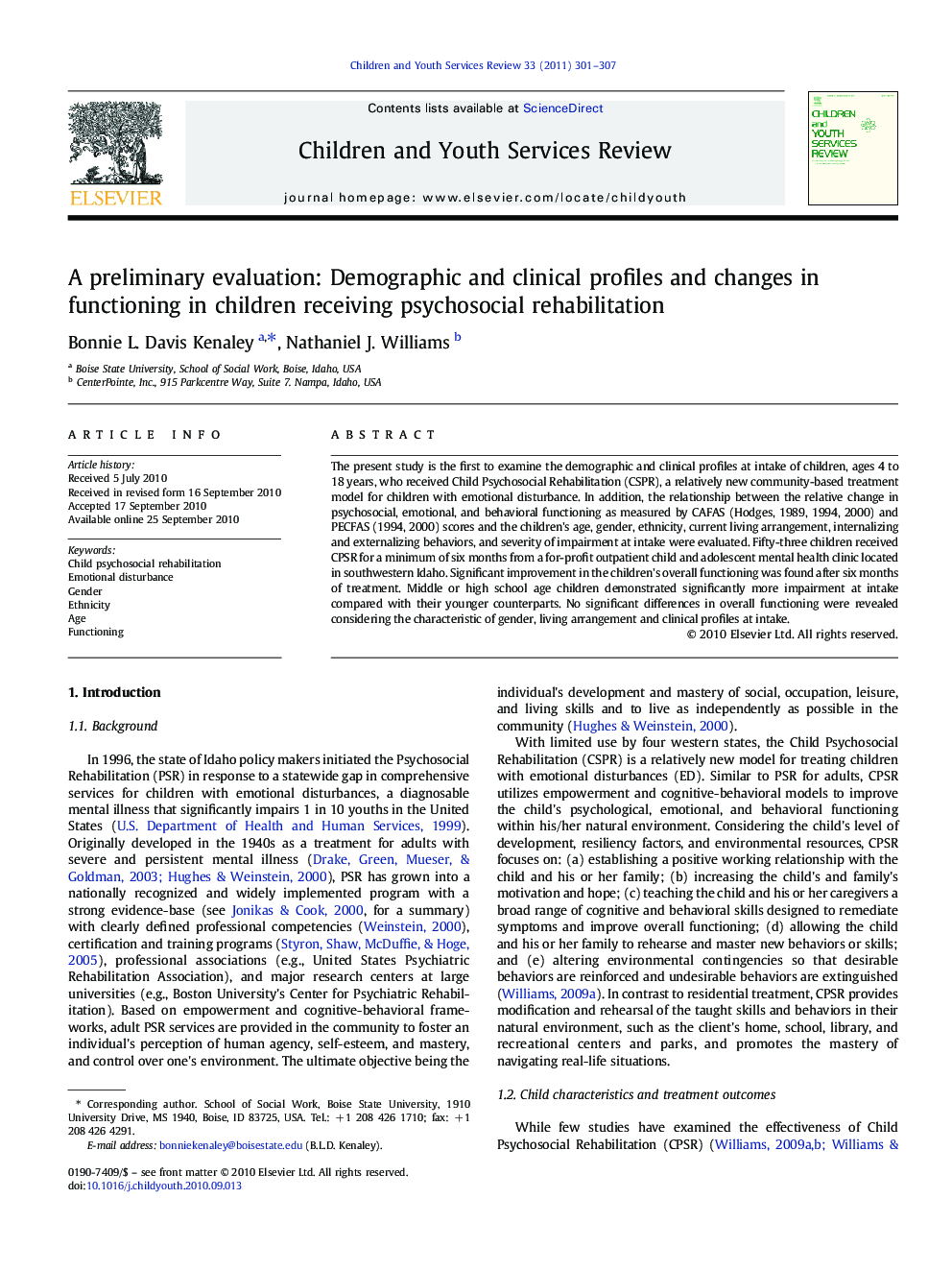| Article ID | Journal | Published Year | Pages | File Type |
|---|---|---|---|---|
| 347412 | Children and Youth Services Review | 2011 | 7 Pages |
The present study is the first to examine the demographic and clinical profiles at intake of children, ages 4 to 18 years, who received Child Psychosocial Rehabilitation (CSPR), a relatively new community-based treatment model for children with emotional disturbance. In addition, the relationship between the relative change in psychosocial, emotional, and behavioral functioning as measured by CAFAS (Hodges, 1989, 1994, 2000) and PECFAS (1994, 2000) scores and the children's age, gender, ethnicity, current living arrangement, internalizing and externalizing behaviors, and severity of impairment at intake were evaluated. Fifty-three children received CPSR for a minimum of six months from a for-profit outpatient child and adolescent mental health clinic located in southwestern Idaho. Significant improvement in the children's overall functioning was found after six months of treatment. Middle or high school age children demonstrated significantly more impairment at intake compared with their younger counterparts. No significant differences in overall functioning were revealed considering the characteristic of gender, living arrangement and clinical profiles at intake.
Research highlights► Children's overall functioning significantly improved between baseline and eight months of treatment, representing a change from "marked" impairment to "moderate" impairment. ► No significant between-group differences were found for gender, age, ethnicity, and living arrangement. ► Insignificant findings were revealed for the interaction effect for children's clinical profile at intake on the total CAFAS/PECFAS scores.
